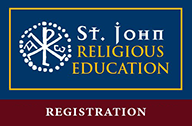Bulletins
November 21, 2021
Download the Bulletin as a PDF21 November
Solemnity of Our Lord Jesus Christ King of the Universe
The 24th and Last Sunday after Pentecost
Ordinary Form
Deuteronomy 7,13-14
Psalm 93,1.1-2.5
Revelation 1,5-8
John 18,33b-37
Extraordinary Form
Colossians 1,9-14
Psalm 43,8-9
Psalm 129,1.2
Matthew 24,13-25
from "The Liturgical Year" by Dom Prosper Guéranger, O.S.B.
The end proposed by eternal Wisdom in the world's creation, and mercifully continued, after the fall, by the mystery of Redemption, has now (we speak of the Church's year and God's workings) been fully carried out. This end was no other than that of divine union with human nature, making it one in the unity of one only body. Now that the two antagonistic people, Gentile and Jew, are brought together in the one same new Man in Christ Jesus their Head, the two Testaments, which so strongly marked the distinction between the ages of time, the one called the old, the other the new, fade away, and give place to the glory of the eternal Alliance.
...having led her children, not only to have a thorough appreciation of the divine plan, which she had developed before them in her celebrations, but moreover, and more especially, to unite them, by a veritable union, to their Jesus, by a real communion of views, and interests, and loves... it used to be that Holy Mother Church did not revert again to the second coming of the GodMan and the last judgment, two great subjects which she had proposed for her children’s reflections at the commencement of the purgative life, that is, in her season of Advent. It is only a few centuries ago that, with a view of giving to her year a conclusion more defined and intelligible to the faithful of these comparatively recent times, she chose to conclude the cycle with the prophetic description of the dread coming of her Lord, which is to put an end to time, and to open eternity.
From time immemorial, St. Luke had had the office of announcing, in Advent, the approach of the last judgment; the evangelist St. Matthew was selected for this its second, and more detailed, description, on the last Sunday after Pentecost...
Several times during Advent we [will meditate] on the circumstances which are to accompany the last coming of Christ our Lord; and in a few days the same great teachings will be again brought before us, filling our souls with a salutary fear. May we, then, be permitted on this last Sunday of our liturgical year to address ourselves in a prayer of desire and praise to our adorable Lord and King, the solemn hour of whose judgment is to be the consummation of His work, and the signal of His triumph.
Come Lord Jesus!
Rev. Christopher J. Pollard



